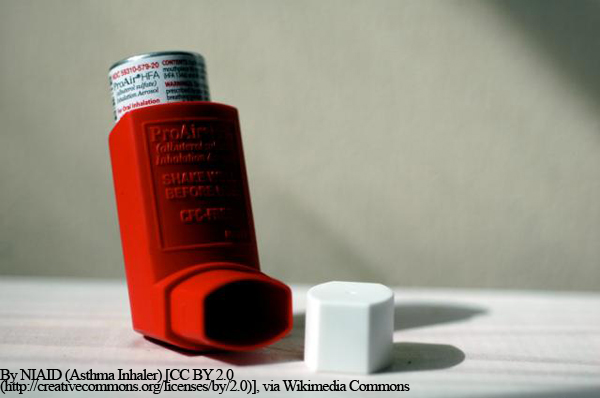A team of researchers at the University of British Columbia, Canada, analyzed the microbiome of 319 children and found that those who were lacking in four distinct bacterial strains, were at an increased risk of developing asthma. The results suggest that exposing children to the ‘right bugs at the right time’ could be the key to preventing the development of asthma and allergies.
The researchers compared the gut microflora of children at three months and one year, and assessed their risk of asthma at age three, based on standard wheeze and skin allergy tests. Three-month-old children whose gut bacteria was missing four beneficial strains – Faecalibacterium, Lachnospira, Veillonella, and Rothia (Flvr) – faced a heightened chance of developing asthma at age three.
When the microbiome of the children was analyzed at age one, the presence of the bacterial strains was not associated with a decreased risk of asthma. This result suggests that it is very important that children are exposed the right microbes, within the first few months of life. The results were published in the journal, Science Translational Medicine.
Studies into the effect of strain-specific bacterial supplementation on the health of developing mice pups, found that addition of the microbes reduced their airway inflammation. “Our longer-term vision would be that children in early life could be supplemented with Flvr to look to prevent the ultimate development of asthma,” said Dr. Stuart Turvey, one of the project’s researchers.
Turvey went on to say, “I want to emphasize that we are not ready for that yet – we know very little about these bacteria – [but] our ultimate vision of the future would be to prevent this disease.” Cases of asthma – a breathing condition caused by an increased sensitivity irritation and inflammation in the airways – are on the rise, affecting almost 20% of all children in the Western world.
Other possible reasons for the increased incidence of asthma include: birth by caesarean section, obtaining from breast feeding, and antibiotic use in pregnant women – all of which limit the number, and type, of bacteria the baby is exposed to, and can stunt proper development of the child’s microbiota.
Dr. Benjamin Marsland, from the University of Lausanne, in Switzerland, said, “For a number of years, exposure to microbes has been linked with protection against asthma; a classic example is growing up on a farm and drinking raw milk. This new study adds weight to these observations and supports the concept that there are certain developmental windows in early life, where it’s really important to get the right signals.”
While this study represents a great step forward in our understanding of the cause of allergies and asthma, other experts in the field – along with the study researchers themselves – maintain that more in-depth research must be performed, in order to further substantiate the link.
“Asthma is a complex condition, and this research suggests that the delicate balance of gut bacteria in our bodies affects our immune systems and may have a role to play in why some people go on to develop asthma,” said Dr. Samantha Walker from the charity, Asthma UK. “However, much more research is needed to help understand what these findings mean in terms of providing advice for new parents, developing treatments and ultimately a cure.”
Sources:
- ‘Good bacteria’ key to stopping asthma – http://www.bbc.com/news/health-34392522
- Is a ‘too-clean’ environment to blame for childhood asthma? – http://www.medicalnewstoday.com/articles/300350.php
- Arrieta, M., Stiemsma, L., Dimitriu, P., Thorson, L., Russell, S., Yurist-Doutsch, S., Kuzelijevicm, B., Gold, M., Britton, H., Lefebvre, D., et al. (2015). Early infancy microbial and metabolic alterations affect risk of childhood asthma. Science Translational Medicine. 7 (307) http://stm.sciencemag.org/content/7/307.toc












Join or login to leave a comment
JOIN LOGIN